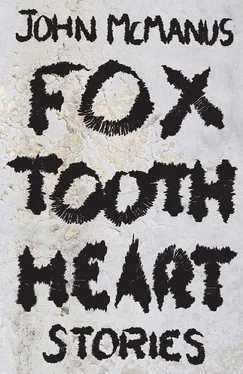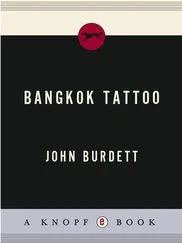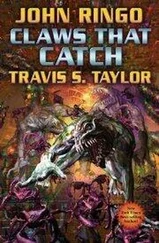“You’re an eroded plateau.”
“Have you been to the Rockies?”
“Do what?”
“You take vacations?”
“My mom’s a manager.”
“Mine’s a scientist.”
“She’s a crackhead.”
“She studies stars.”
“Want to get naked?”
“No,” Carl said. The wind on his naked skin might feel magnificent, but what he sought climbing Thistle Mountain was serenity. Gazing into a wild but consistent landscape dotted with fiery blooms, he lay still.
“Maybe next time.”
“Maybe,” Carl said, and indeed next week Silas asked again. Again Carl said no. The third time, Silas proposed a game: they would drop their pants and kick each other in the balls, and whoever took the most kicks would win.
“I played it with my cousin and I beat him.”
“Which means you lost.”
“You’re a dipshit,” said Silas, which was outrageous.
“Fine, I’ll do it, but with my clothes.”
“Well, I’m taking mine off.”
Silas let his pants fall. Proudly he stood there in briefs as Carl readied his leg and kicked, hard. The blow landed on target. Gripping himself, Silas lurched and leaned into the pain, trying not to wail.
It felt good to hurt someone as embarrassing as Silas. After a few moans, though, Silas stood upright again and grinned, which was when Carl fell forward into a fetal crouch of his own.
“You win,” he howled in mock pain, upside down while Silas’s pan-faced head moved closer. He shut his eyes. Was he okay? “I don’t know,” he whispered, wanting Silas to worry.
After a minute Carl opened his eyes to see Silas’s crotch bulging out through his briefs. His balls appeared twice their former size.
“Did that happen when you played with your cousin?” Carl said, pointing.
Silas reached down to feel. “I might should put some ice on it.”
They walked downhill. “Maybe a doctor, too,” said Silas on the trail.
“One word to your folks, and I’ll tell everyone.”
“It doesn’t hurt, it just chafes.”
“Your balls grow as you get older,” Carl said, more to reassure himself than to comfort Silas. “You’re probably just growing up.”
Back home, trying to edit, he kept losing himself in the same sentence on mountain formation. What was distracting him — his mother’s snores? She slept through plenty of afternoons. The bills? His brother Frank was paying those. The pain he’d caused? Thinking about that, he pulsed with dread. He felt like a sick pervert. Out the window he noticed that the Boyds’ car was gone. Where? The hospital. Why? His breath went shallow; he gulped down puke. Either Silas had told, or he’d succumbed before naming Carl. If the latter, the exam would show a bruise or there would be no exam. If the latter again, no one had seen the kick or someone had, everyone had, and so on until Carl heard on the TV news that, in a freak accident, a local boy had suffered testicular trauma, gone into shock, and passed away on a gurney in the ER.
For days Carl waited for the cops to come for him and find his mother’s drugs and arrest her too. He could warn Marissa to lie low, hide the pipes, but how to justify his concern? Better her in prison than him coming clean. On the fourth day he attended the funeral, so awful that he retained few memories of it later on Thistle Mountain’s survey stone, eating wild berries until the knife-blade of dread chased him from his crime scene. A mother who paid attention might have connected Carl’s behavior to Silas’s death. One naïve question and Carl might have burst into blubbery tears, told all — it would have brought such relief — but the closest Marissa came was the day he found her on the couch, the curtains wide so any passerby could see her smoking.
“I’m studying Alberta,” she said, when he went to shut them.
“What’s Mrs. Boyd doing?”
“Gardening. Was Silas your best friend?”
“We knew each other.”
“You were always climbing hills.”
“I still climb hills.”
“It’s like, here I am, and Alberta’s got energy for flowers? I never taught you about death. I’ve had friends die, but I wasn’t young, I took you to that funeral and I. .”
She trailed off. If she’d been clean, she might have felt in Carl’s vacant shoulder-pat how anxious he had become.
“I know what death is,” he said.
“Maybe sort of, but not really.”
“Spot and Rex died.”
“You remember Spot?”
“Mom, treat me like an adult?”
“Okay,” Marissa said. Had Carl obeyed the moment’s instinct, he’d have followed her gaze out to watch the Boyds’ house like a film with her. Instead he returned to his room and drew plans for a four-story shopping mall. Sketching its soaring atrium, he was able to breathe easily. As he laid out a zoned city around the mall, a belief crept in that he’d intended to kill Silas, so he threw himself into a more ambitious project, a megalopolis made up solely of limited-access highways. In 2000:1 scale the cloverleaves metastasized onto page after new page, crowding out thoughts. Evolution, taunted Carl’s mind in the distance, had paired Silas’s instinct for being hurt with his for hurting. He only drew. Like editing, the work was endless. If he heard a car at the Boyds’, he focused harder, and so on until August, when the principal began the welcome-back assembly with a moment of silence for their classmate who had tragically, et al.
Weighing the rhyming sounds of silence and Silas , Carl went hollow. Each school day would begin with a similar call for “a moment of silence for meditation or personal belief,” and each day plainclothes cops would observe to see which kid froze up in guilt. Blueprints wouldn’t help. Nothing would but some all-out war. Fort Leonard Wood was up the road. If China nuked that base, killing everyone, one boy’s demise would come to seem a tiny thing. Their ballistic missiles had the range. Atomic holocaust , chanted Carl’s wanting mind as other kids coaxed meaning from their friend’s demise. “It’s when you touch yourself too much.” “It’s AIDS.” They seemed as excited as they were troubled. Nodding to agree that such a death could claim no honest victim, Carl wiped out his school with hydrogen bombs, conveying to God what he wanted now that he’d given up on his mother.
In his first real memory, not a muddled glimpse but a sequence in time, Carl was four and Marissa was forty. They were eating popcorn on the carpet while reporters canoed through the Ninth Ward of New Orleans. He asked, “How far is that?” and Marissa replied, “Today? I need a place of peace. What’s it called, Carl, when you can concentrate? I’m losing focus, you’d do better with your sisters, they’d cook you food, at least,” and so on, patting his head to a peculiar rhythm. He asked no further questions. He was silenced by the thought that, even as he sat beside her, he might see his mother floating across the TV, face-down in the putrid waters spilling from Lake Pontchartrain. Lighting a pipe she’d never concealed from him, she said, “Don’t tell,” as if loyalty was something he still needed to learn. For years in his nightmares they’d been carting her off to jail. Those dreams stopped when Silas died.
Not that the death had coincided with an upturn in Marissa’s life. Lately she was getting messed up with a taxidermist named Willy. One October night while Willy and Marissa were out joyriding, Carl tried to conjure another of the old dreams to prove that he still loved her. Over and over he crashed cars on dark highways in his mind until he was envisioning his own transfer from juvenile to adult prison, where the guard warned the other inmates, “This one’s a sex offender.”
Читать дальше












